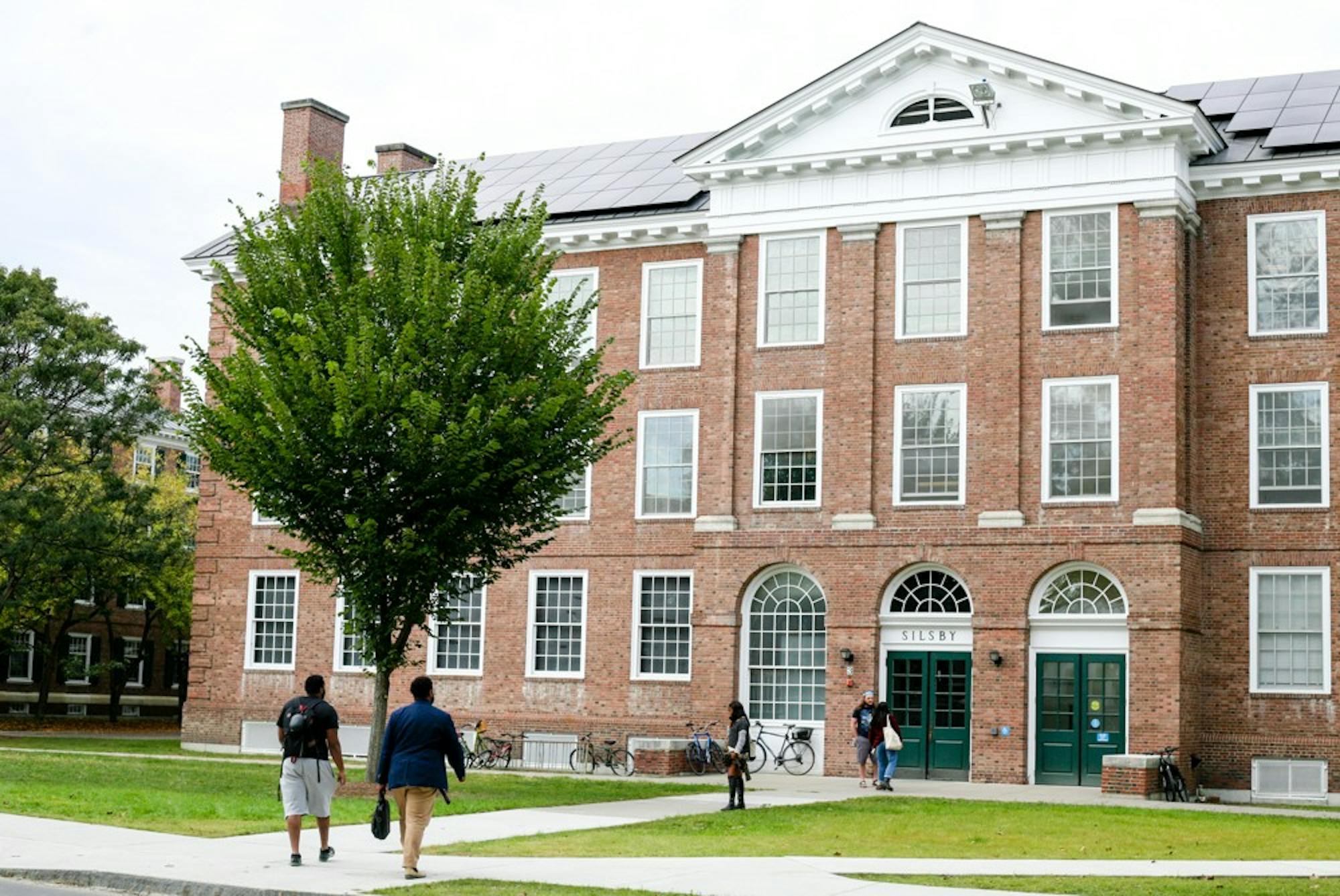Conservative Students of Dartmouth, a conservative-oriented student organization formed in the fall term, hosted its first two meetings on Jan. 10 and Jan. 17.
Founded by co-presidents Alex Azar ’25 and Paige Pattison ’24, Conservative Students of Dartmouth, also known as Dartmouth Conservatives, is intended to “create a space on campus in which students could engage in substantive discussion of conservative ideas, independent of partisan affiliations,” according to an email statement from the club’s leadership.
Described as a “right-of-center club,” Dartmouth Conservatives will host weekly forums that focus on conservative ideas distinct from politics, according to the statement. Club leadership wrote that the club is interested in discussing the ideological and philosophical merits of conservatism.
Though its discussion topics are conservative in nature, Dartmouth Conservatives leadership wrote that all students — aligned with the Republican Party or otherwise — are welcome to attend meetings on Tuesdays. In emails to campus, Dartmouth Conservatives has billed itself as a group “facilitating free, open and respectful discussions of conservative ideals, independent of partisan affiliations or considerations.”
“We encourage a diversity of views, and our meetings so far have proven that conservatives themselves hold many different stances on issues,” club leadership wrote. “We also encourage non-conservatives to attend our meetings if they would like to hear and respectfully challenge conservative views.”
Jordan Narrol ’25, a self-described Democratic-socialist, said he “really enjoyed” the meeting, which allowed him to listen to — and respectfully disagree with — opinions he does not share.
Narrol said that after attending a Dartmouth Political Union meeting last week, Azar had invited him to Dartmouth Conservatives, a proposition that he said he was initially hesitant to accept.
“Normally, I wouldn’t want to come into [this] space and interrupt if I wasn’t welcome,” Narrol said. “But [Azar] made it very clear that they would enjoy some back-and-forth, some difference of opinion… so I figured I would take the opportunity.”
Dartmouth Conservatives meetings are formatted as roundtable discussions between attendees, with Azar and Pattison serving as moderators. At the beginning of each session, Dartmouth Conservatives leadership proposes a statement to the group, which serves as the basis for the meeting’s discussion.
Before any debate begins, attendees are asked to vote on the statement, answering “yes” if they agree with it, “no” if they disagree or “undecided” if they have yet to take a firm stance either way. Discussions last for around an hour, with students raising their hands to speak, and end with a closing vote to see if anyone’s position has shifted.
In the club’s most recent meeting, which focused on affirmative action, vote totals did not change by more than two votes after the discussion, though several students left and joined the meeting between tallies. Voting procedures will be made “more reliable” in future meetings, Azar said.
One student, a freshman who agreed to be interviewed for this article under the condition of anonymity, described themself as a moderate Democrat, said the meeting was “refreshing” for providing opinions they would not normally hear in a classroom setting.
“I think that, currently, America and Dartmouth [are] so polarized and partisan,” they said. “I think that I want to be able to hear different perspectives, and be okay with hearing people’s opinions that I don’t agree with.”
The student said they had requested anonymity because of their perception of the student body’s ideological leanings. A November poll conducted by The Dartmouth found that 58% of College students identify as Democrats, while 9% identify as Republicans.
“I want anonymity because I know a lot of people on campus don’t appreciate conservative views — especially just attending a conservative club would, in my opinion, make a lot of people mad at me,” they said. “I think staying anonymous helps me avoid some of those interpersonal issues on campus.”
As a new conservative-oriented student group on campus, Dartmouth Conservatives joins the Dartmouth College Republicans, established in 1958, and The Dartmouth Review, a conservative student news publication founded in 1980. Dartmouth Conservatives currently has “no relationship” with any other conservative group, club leadership wrote.
“The Dartmouth Republicans are in favor of any group on campus that supports a wide range of right-wing viewpoints from moderately conservative to very conservative beliefs,” College Republicans president Chloe Ezzo ’22 wrote in an email statement. “I think that conservative groups on campus should work in tandem to push the Overton window” — discussion of the policies and opinions that are acceptable to the mainstream population — “and foster open discussion.”




